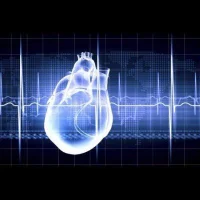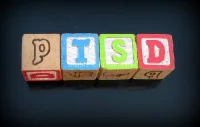According to an article published by JAMA Neurology, patients with cardiac arrest (CA) who received targeted body-temperature management in intensive care units in Europe and Australia as a neuroprotective measure had an improved quality of life and cognitive function.
The primary cause of death for patients in ICUs after a cardiac arrest is brain injury. Targeted temperature management (TTM) is used as a neuroprotective treatment for comatose CA survivors because it is reported to improve survival.
Niklas Nielsen, M.D., Ph.D., of Lund University and Helsingborg Hospital, Sweden, and co-authors compared the effect of two targeted temperature regimens on long-term cognitive function and quality of life after CA.
The trial comprised of 939 adults who were unconscious with CA and was performed from November 2010 through part of January 2013. Patients were assigned to either temperature management at 33 degrees Celsius (91.4 degrees Fahrenheit) or 36 degrees Celsius (96.8 degrees Fahrenheit). The intervention lasted 36 hours and patients were cooled down or warm up to the assigned temperature. Patient cognitive function and quality of life were measured six months after the CA.
The follow-up findings show that 245 patients were alive in the 33-degree-Celsius group while 246 were alive in the 36-degree-Celsius group. Cognitive function scores were similar for both temperature groups. No difference was found in the number of patients with an increased need for help in daily activities with 18.8 percent in the 33-degree-Celsius group and 17.5 percent in the 36-degree-Celsius group. 66.5 percent of patients in the 33-degree-Celsius group and 61.8 percent in the 36-degree-Celsius group thought they had made a complete mental recovery.
“Quality of life was good and similar in patients with CA receiving TTM at 33 degrees Celsius or 36 degrees Celsius. Cognitive function was similar in both intervention groups, but many patients and observers reported impairment not detected previously by standard outcome scales,” the study concludes.
In an accompanying editorial, Venkatesh Aiyagari, M.B.B.S., D.M., of the University of Texas Southwestern Medical Center, Dallas, and Michael N. Diringer, M.D., of the Washington University School of Medicine, St. Louis, write that an important message can be derived from this study. Although cognitive changes are common, the overall long-term outcome of patients with a CA who survive to hospital discharge is quite good. A large number of these patients are able to resume normal activities and report no problem with self-care after being discharged. Other studies have reported similar findings thus reinforcing the view that patients who survive a CA and are unconscious should be managed with intensive support measures, including TTM and that premature prognostication should be avoided.
Source: JAMA
Image Credit: Wikimedia Commons
References:
Cronberg T, Lilja G, Horn J et al. (2015) Neurologic functionand health-related quality of life in patients following targeted temperaturemanagement at 33°C vs 36°C after out-of-hospital cardiac arrest - a randomizedclinical trial. JAMA Neurol, April 6. doi:10.1001/jamaneurol.2015.0169










